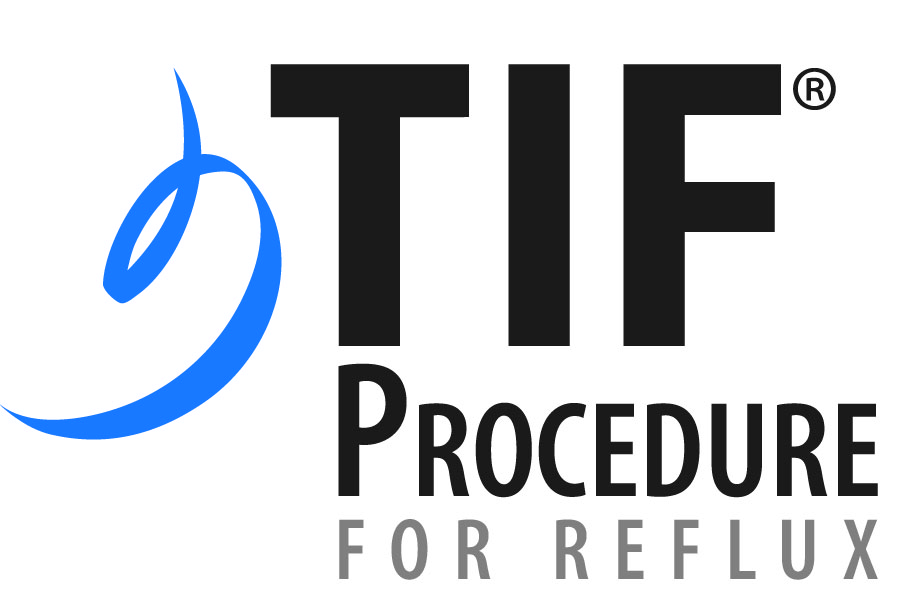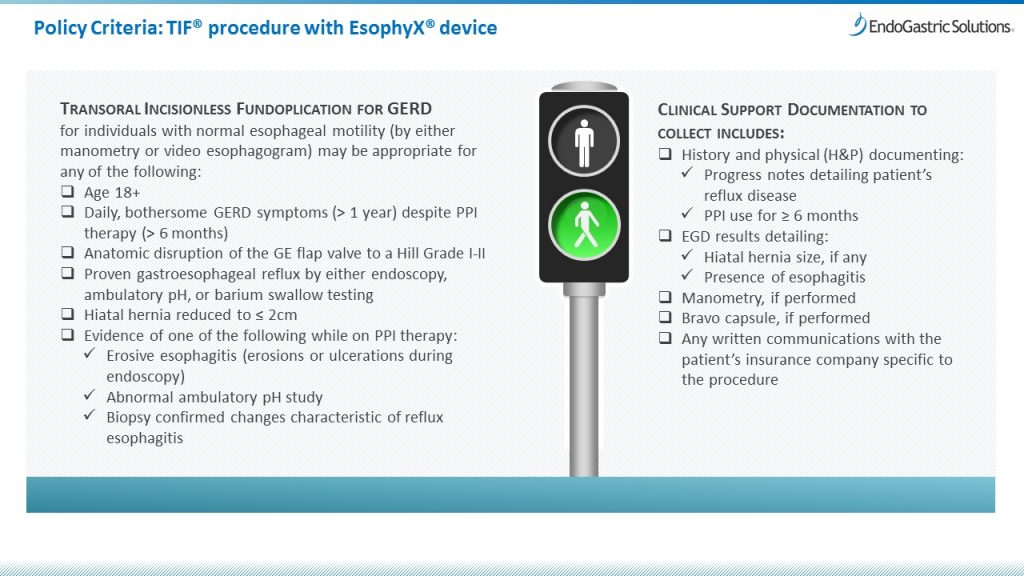Choosing the Right Antireflux Procedure
- Do you experience symptoms of chronic gastroesophageal reflux disease (GERD)?
- Have you tried diet and lifestyle changes, without consistent improvement or symptom resolution?
- Are you taking medicines to control your GERD symptoms, without adequate relief?
- Are you concerned about adverse long-term effects from taking these medicines?
If you answer yes to these questions, you may already be considering surgery. In this case your next step might be choosing the right antireflux procedure for your situation.
Find Out If You Are an Appropriate Candidate for the TIF Procedure
The TIF procedure may may be appropriate for those suffering from GERD who:
- Regularly experience troublesome symptoms of GERD
- No longer respond adequately to, or are dissatisfied with, medicines used to treat GERD
- Are concerned about the adverse long-term effects of taking proton pump inhibitors (PPIs) and other medicines
 The goal of both Nissen fundoplication (the technical name for conventional antireflux surgery) and the TIF procedure is to restore the normal antireflux function of the junction between the esophagus and the stomach. The TIF procedure has a history of excellent clinical results and long-term relief from GERD symptoms for most patients.
The goal of both Nissen fundoplication (the technical name for conventional antireflux surgery) and the TIF procedure is to restore the normal antireflux function of the junction between the esophagus and the stomach. The TIF procedure has a history of excellent clinical results and long-term relief from GERD symptoms for most patients.
The TIF procedure may not be the most appropriate surgery for all patients. However, it is most appropriate for those suffering from GERD who are considering surgical intervention but are concerned about the complication rate and potential side effects of traditional Nissen antireflux surgery. The potential side effects can include gas, bloating, difficulty swallowing, and inability to vomit.
To determine if you are an appropriate candidate for the TIF procedure, locate a TIF-trained physician near you to schedule a consult.


